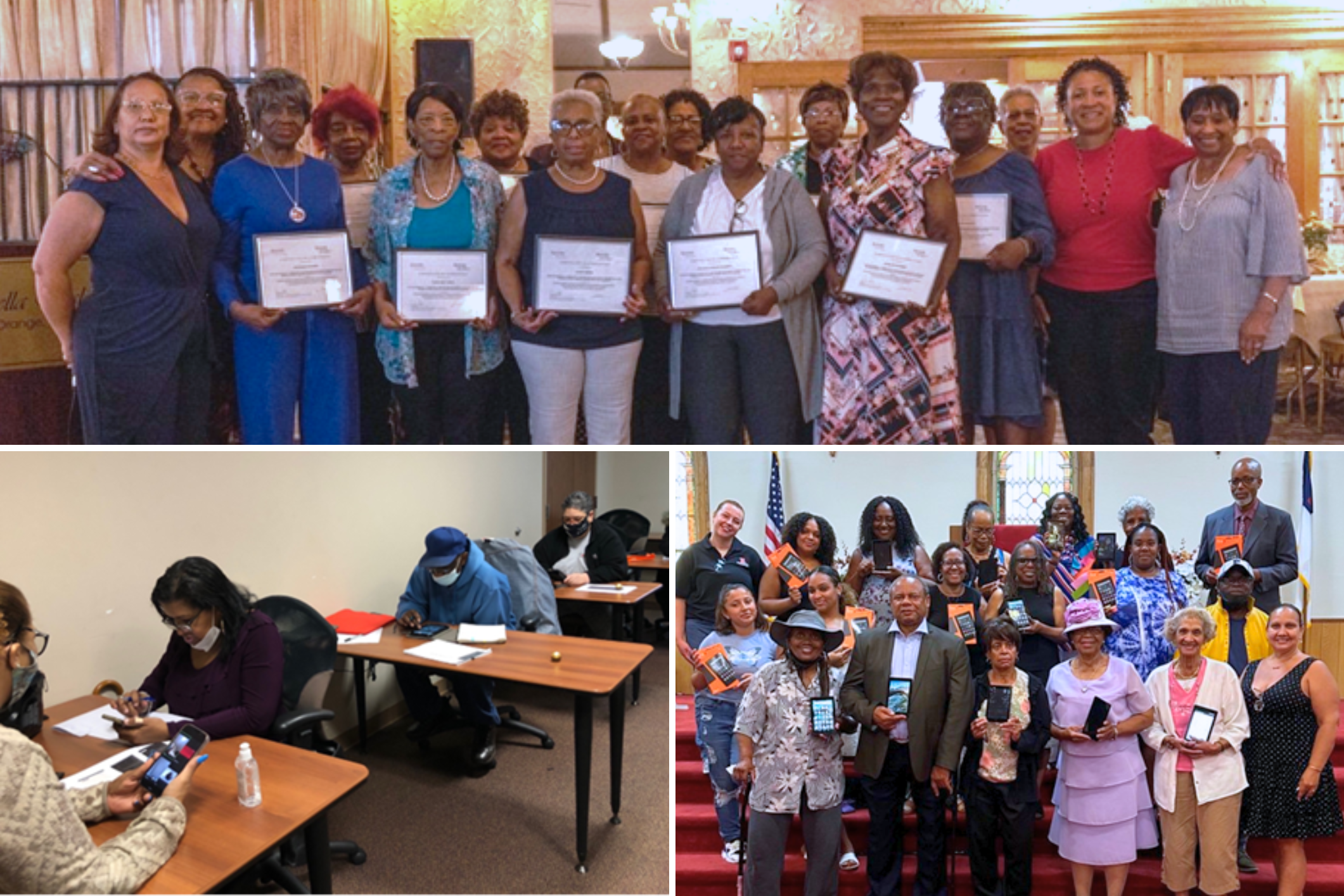By Diane Hill, Ph.D., Donita Devance, MCRP, and Epiphany Munz, B.A.
The COVID-19 pandemic changed the way that we communicate and interact as a society. Importantly, it highlighted the need for digital literacy, digital fluency, and internet access as increasingly important vehicles to preserve population health. Unfortunately, the systems and practices devised worldwide in the wake of the emergency also served to underscore deep inequities in access and use, especially as they relate to already medically disenfranchised populations like the urban poor and minority elderly.
The Senior Connect project galvanized community stakeholders to design and implement an effective, multi-modal training program to address digital literacy among older adults in Greater Newark and nearby communities. Acting as neutral convenor, the Office of University-Community Partnerships (OUCP)/Center for Health Equity and Community Engagement (CHECE) at Rutgers University-Newark (RU-N) used the Transdisciplinary Intergenerational Community Engagement Model (TICEM), a proven-effective collaborative planning framework, to bring together change agents that included community-dwelling older adults, senior-serving organizations, business and philanthropic leaders, and other community stakeholders, as well as Rutgers University faculty, staff, and students. This planning committee relied upon TICEM as a framework to embed a sustainable community-engaged solution to the senior digital literacy problem in the Greater Newark area.
The planning committee reviewed existing literature, assessed local survey data, identified barriers, leveraged resources, and adapted user-friendly technology (Amazon Fire 7 tablets) to design a process that includes instructional support and coaching, training guides, programmed activities, and peer support to help older adults gain access to devices and improve proficiency in their use. Training was conducted at sites throughout the community, in group and one-on-one settings. The training included tablet basics and features, setting up and using email, internet safety and password management, connecting to broadband internet, and introductions to navigating websites for reliable information and resources. OUCP/CHECE continued to engage participants through training and educational opportunities offered virtually through its Advocates for Healthy Living Initiative, a group focused on reducing health disparities, promoting health equity, and improving the quality of life among urban seniors.
This report, published by the New Jersey State Policy Lab, explores the use of the community-engaged model to improve inclusivity and motivate seniors to incorporate digital technology in their daily lives. Preliminary data support the efficacy of both the community-engaged planning model and the resulting intervention. Nine community partners participated in recruiting and training 137 individuals. Our research and project experience demonstrate that older adults require special attention to address their needs. Our findings speak to the practical and moral imperative to improve resource allocation to older populations. As our society moves to greater use of technology for assorted purposes (accessing government services, scheduling medical appointments, managing health care portals, etc.), this report offers policy recommendations to guide the planning and implementation of programs that explicitly address older adults’ technological needs.

